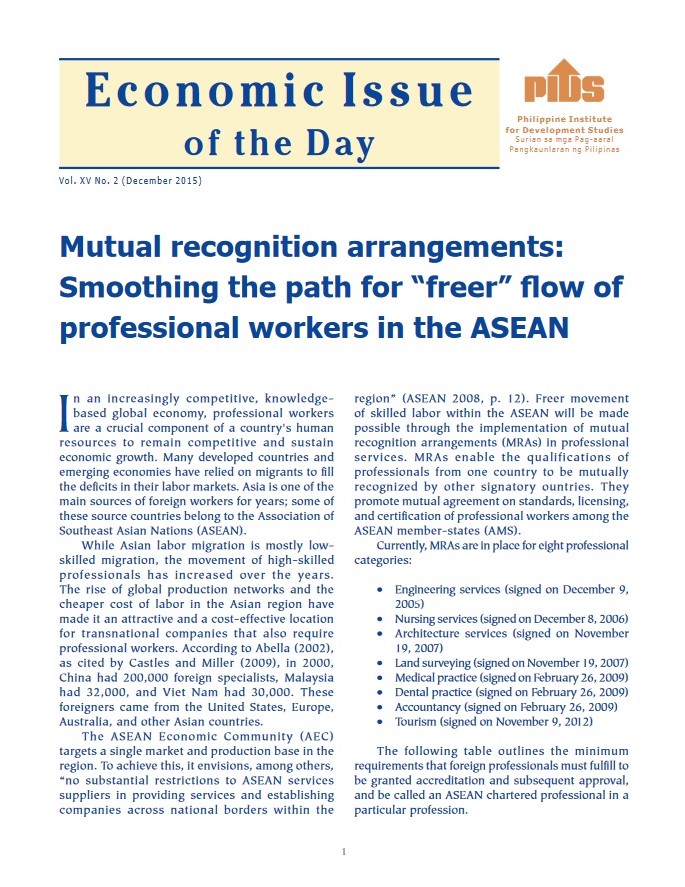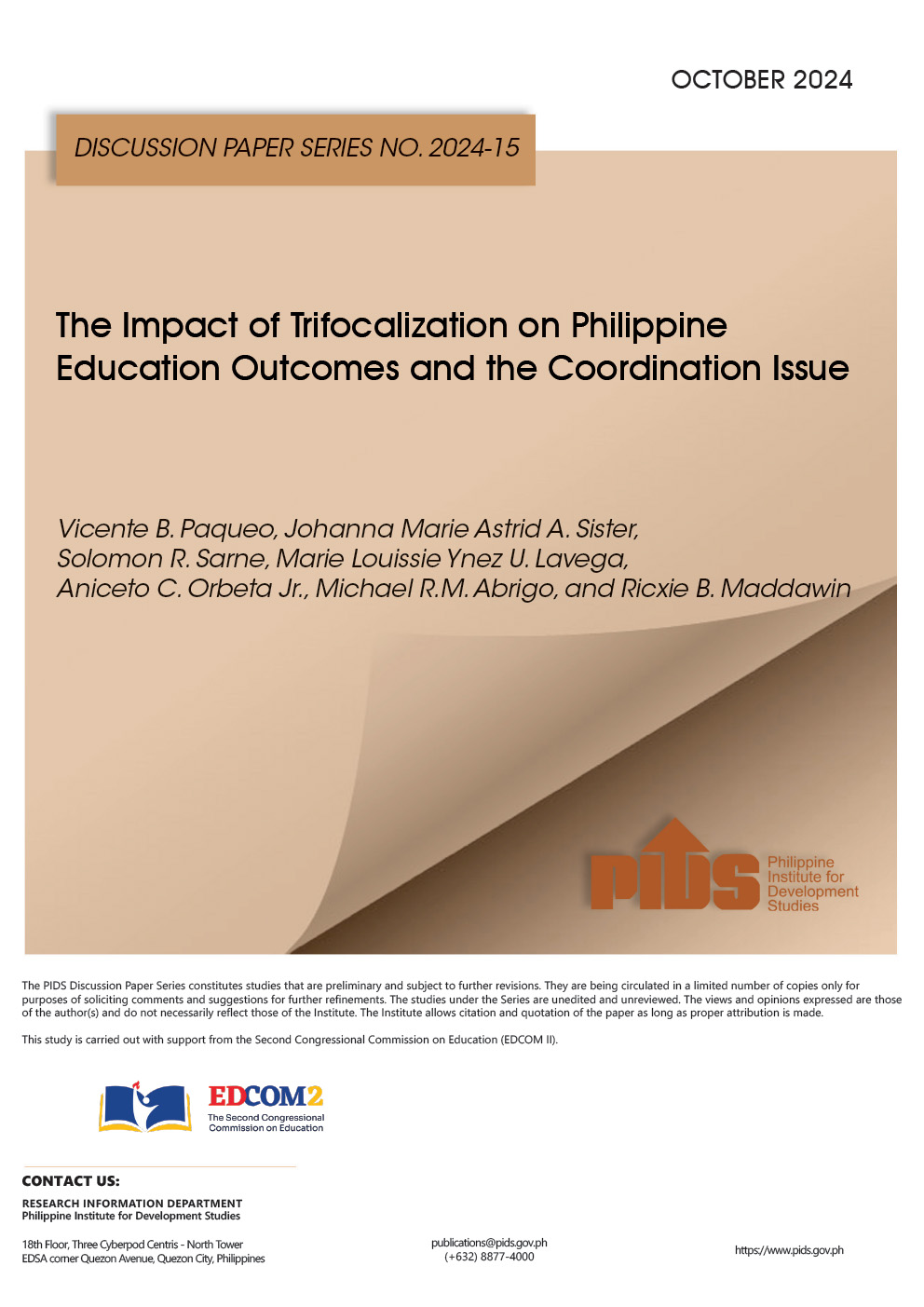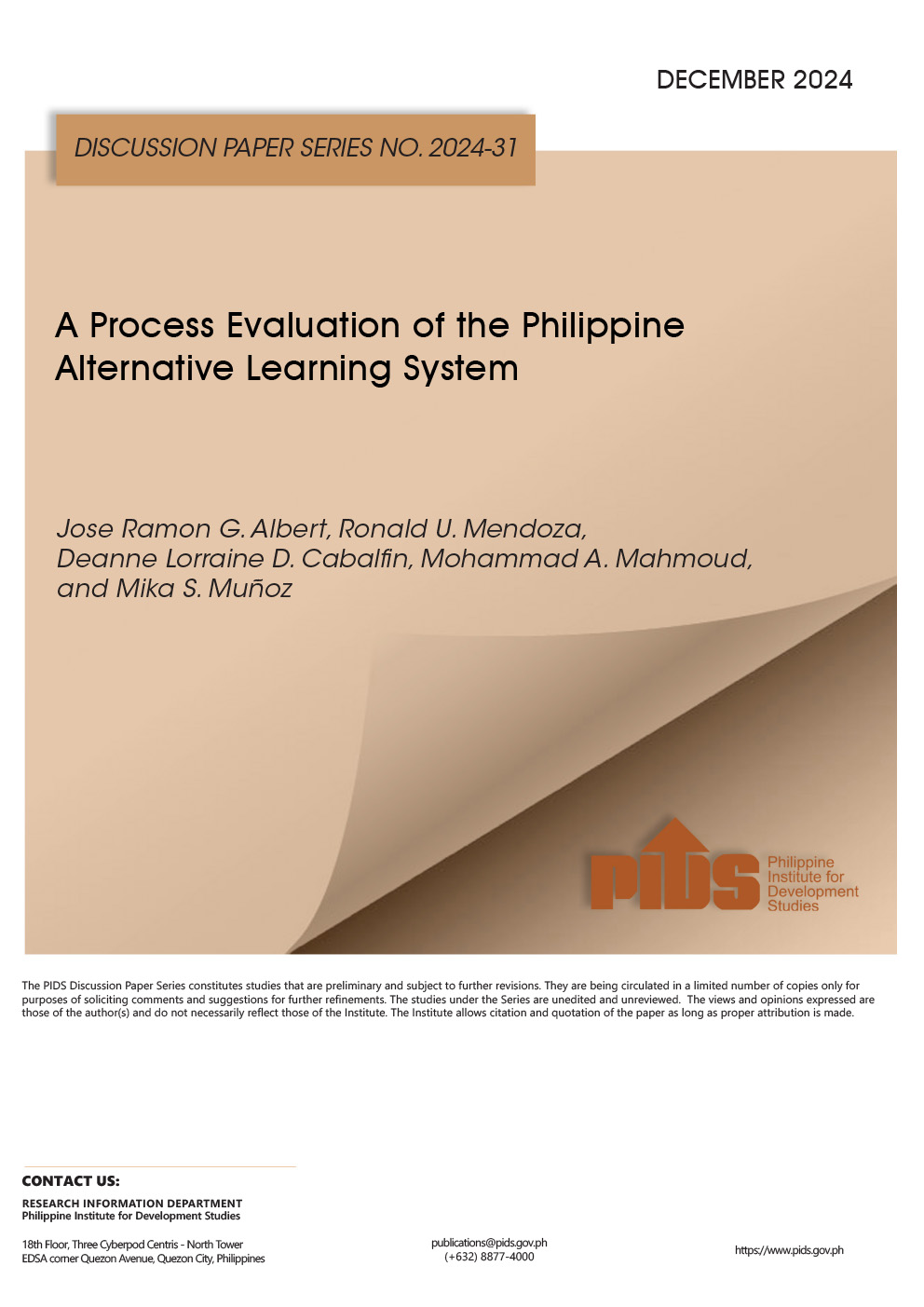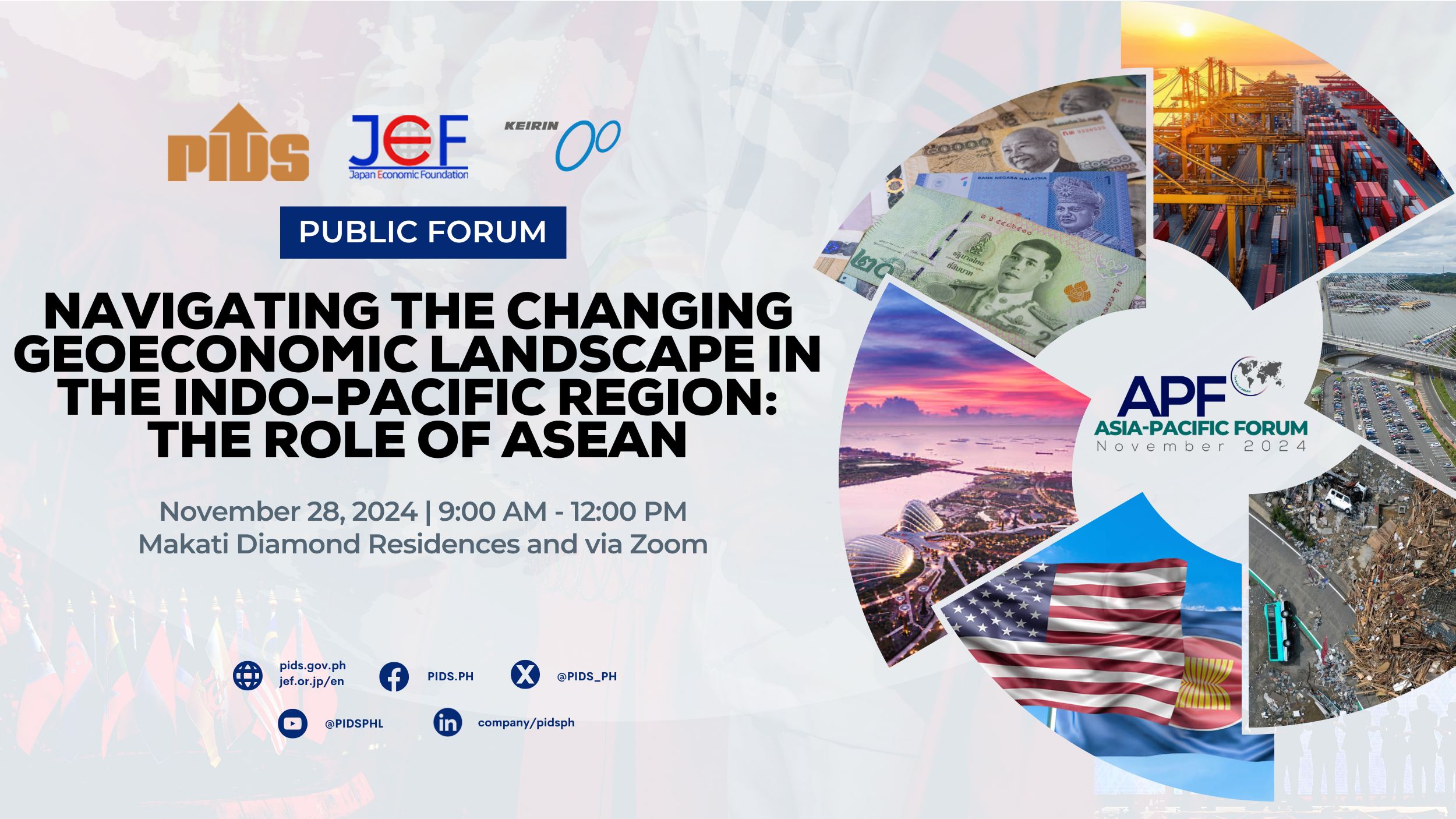The ASEAN Economic Community (AEC) targets a single market and production base in the region. To achieve this, it envisions, among others, freer movement of professional workers among the ASEAN member-states (AMS) through mutual recognition arrangements (MRAs). Increased cross-border movement of skilled labor has significant economic advantages both for sending and receiving countries, such as alleviating unemployment and underemployment, increased remittances, technology transfer, business and professional linkages, and return migration of expatriate professionals. Eight professional categories have MRAs but in varying levels of implementation due to the different competencies among the AMS. Smoothing the path for freer flow of professional workers requires the collaboration of AMS in general, and of receiving and sending countries in particular. Harmonizing labor regulations in the region is crucial, as well as proper implementation of quality assurance frameworks and accreditation mechanisms. For the Philippines, improving the quality of education at all levels is necessary to make its graduates and workers competitive with their counterparts in the ASEAN. In due time, the MRAs need to be expanded to cover unskilled and low-skilled labor if ASEAN leaders really want the AEC to result in inclusive growth.













